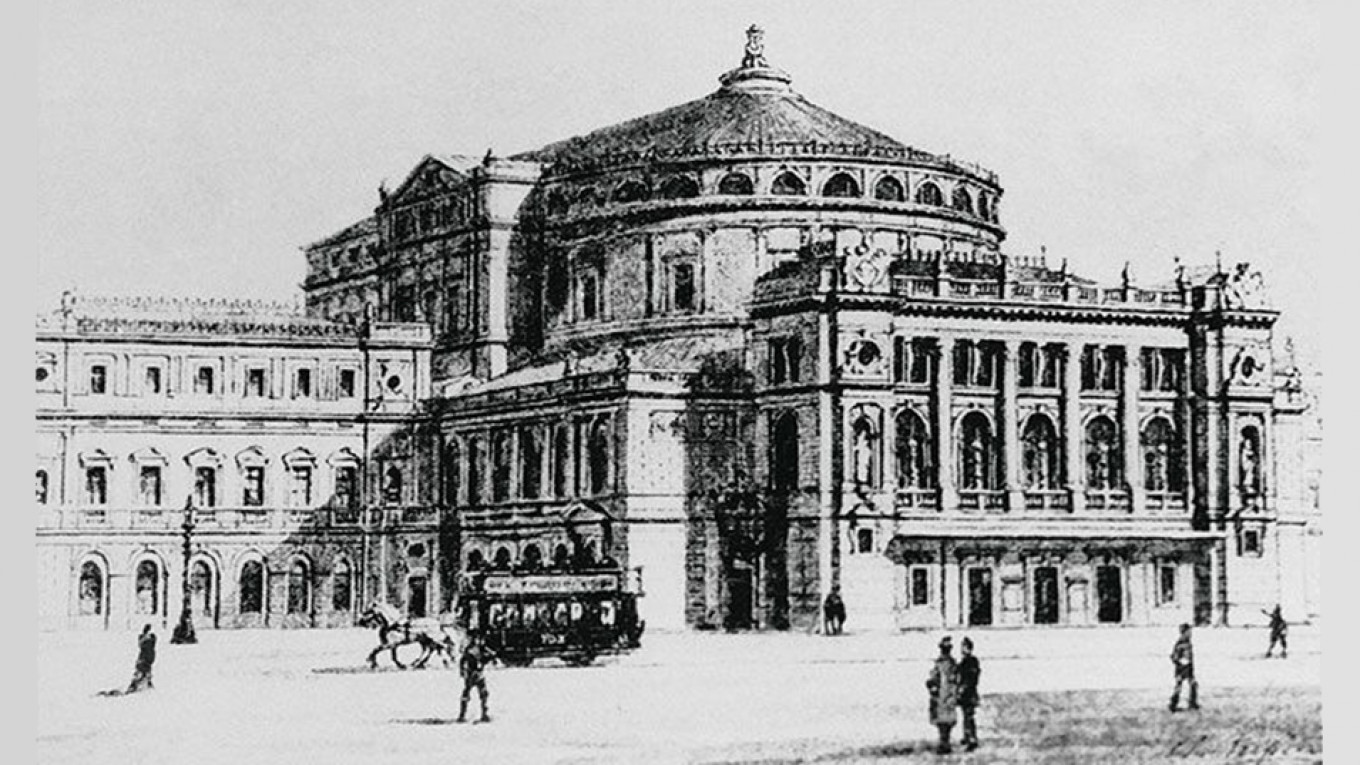The history of the Mariinsky Theater began on July 12, 1783, when Empress Catherine II approved the establishment of an Imperial drama, opera, and ballet troupe in St. Petersburg. This decree led to the construction of the Bolshoi Stone Theater, the Mariinsky Theater’s predecessor, and placed the first stone in what would become St. Peterbsurg’s Theater Square.
The Bolshoi Stone theater featured performers from Russia, Italy, and France as well as what was then cutting-edge mechanical devices. Poet Alexander Pushkin was a regular visitor in the 1820-30s and enshrined the theater in his poems.
The Mariinsky was built to replace another theater that had been destroyed by a fire on that same site. Opened in 1860, the theater was named after Maria Alexandrovna, the wife of Alexander II, and could seat 1,625 people. On October 2, 1860, Glinka’s “A Life for the Tsar” opera was the first performance on the Mariinsky stage. Since then, the theater has staged world premieres of Russian operas such as Mussorgsky's “Boris Godunov” (1874); Tchaikovsky's “The Queen of Spades” (1890) and “Iolanta” (1892); and Rimsky-Korsakov's “The Golden Cockerel” (1909).
In 1886, the Bolshoi Stone Theater was declared unsafe, and ballets were transferred to the Mariinsky Theater. The Mariinsky stage has since hosted world premieres of Russian ballets such as Prokofiev’s revised “Romeo and Juliet” (1940); Prokofiev’s “Cinderella” (1946); and Khatchaturian’s “Spartacus” (1956).
During the Soviet era the theater was renamed three times and was best-known as the Kirov. But in 1992 it again became the Mariinsky Theater, although now as a “State Academic” rather than “Imperial” theater. Today the theater performs operas, ballets, and symphonies, premiering the upcoming season during Petersburg’s White Nights Festival.
A Message from The Moscow Times:
Dear readers,
We are facing unprecedented challenges. Russia's Prosecutor General's Office has designated The Moscow Times as an "undesirable" organization, criminalizing our work and putting our staff at risk of prosecution. This follows our earlier unjust labeling as a "foreign agent."
These actions are direct attempts to silence independent journalism in Russia. The authorities claim our work "discredits the decisions of the Russian leadership." We see things differently: we strive to provide accurate, unbiased reporting on Russia.
We, the journalists of The Moscow Times, refuse to be silenced. But to continue our work, we need your help.
Your support, no matter how small, makes a world of difference. If you can, please support us monthly starting from just $2. It's quick to set up, and every contribution makes a significant impact.
By supporting The Moscow Times, you're defending open, independent journalism in the face of repression. Thank you for standing with us.
Remind me later.






